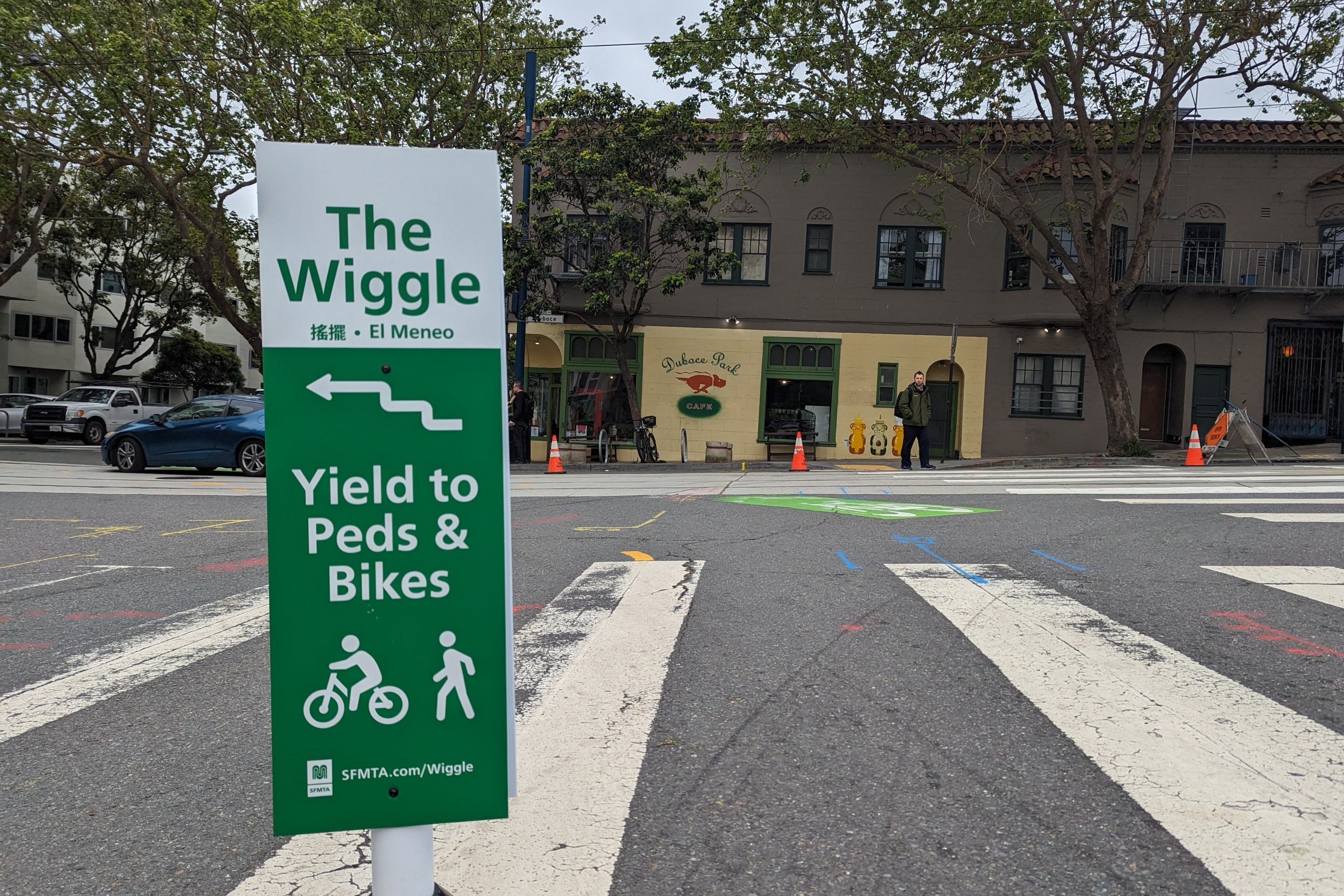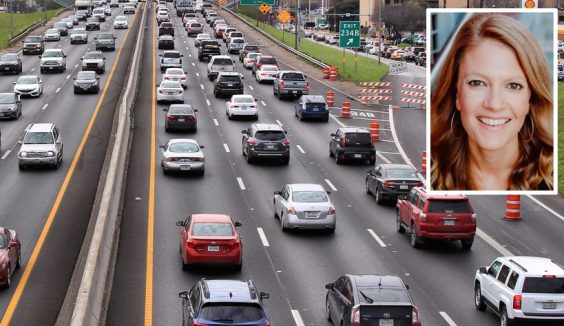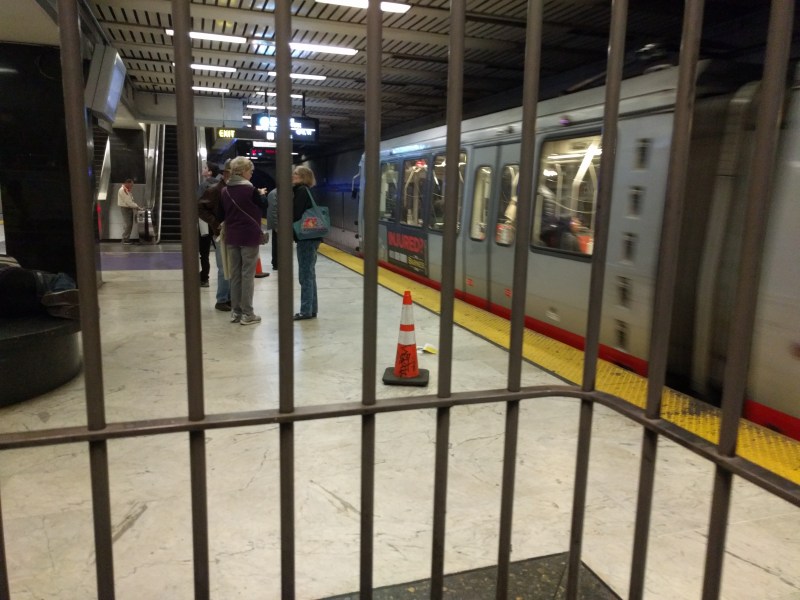MTA Board Braces for Budget to Get Worse
10:00 AM PST on January 6, 2010
 The 44-O'Shaughnessy actually got increased service in December 2009, but future service cuts could leave passengers waiting longer. Photo: Michael Rhodes
The 44-O'Shaughnessy actually got increased service in December 2009, but future service cuts could leave passengers waiting longer. Photo: Michael RhodesIn case it wasn't clear before, this week's MTA Board meeting eliminated any doubt that solving the agency's $45.1 million mid-year budget deficit - not to mention future budget deficits - won't be pretty. After close to an hour of testimony Tuesday from SEIU employees concerned about broad cuts to their ranks, several MTA Board members asked whether they couldn't delay a vote on the cuts, only to be reminded that the layoff notices already went out in November, and that a $22 million shortfall remains even after the sweeping layoffs. Once again, the specter of service cuts also flared up as a near certainty in light of the agency's progressively worsening finances.
In fact, action on the 250 positions the MTA is cutting and permanently leaving unfilled never required a Board vote, nor did the rest of the $23 million the agency's staff identified in its mid-year budget presentation late last year. The next $22 million in budget balancing almost certainly will require a vote, however, and the MTA Board publicly grappled with how to fill the gap.
"I'm not ready to make any vote that's going to lay off critical employees and I believe that these are critical positions," Director Bruce Oka told MTA Executive Director Nathaniel Ford at yesterday's meeting, in light of the testimony from SEIU employees. "I want to explore every source of revenue before we make these cuts, because I don't think we've done that."
Several other directors expressed similar concerns, prompting Ford to ask whether he was being directed to reverse the layoffs, which take effect later this month, and include two dozen PCOs and several bus cleaners. "At this juncture, are we suggesting that we hold off on the layoffs? Is that the Board's direction," asked Ford. "Because they have already received notices, and the actual positions have been noticed, and are moving forward."
Board chairman Tom Nolan told Ford he felt such a decision was an administrative prerogative, not one the Board would dictate, but asked what other options the Board has in the short term to close the gap, in lieu of position cuts.
"The problem I have with this is, I'd like to do that, but this as opposed to what," asked Nolan. "If we're not able to achieve some savings here, is there any mechanism that this Board has within its control in the short term, that is to say for the next six months, to raise revenue? Is there really anything it's possible we could do?"
Ford responded that Muni fares and citation and parking rate increases were within the Board's prerogative, but would not be appropriate, given that both have been raised in the past two years - including the Fast Pass increase effective January 1.
Service cuts remained as one of the only other options. Board members were heartened by the generally positive reception that the public outreach for the December 2009 service changes received, prompting director Malcolm Heinicke to wonder whether additional "planned and efficient service cuts" might be better than "de facto" service cuts through position elimination. "I don't want to cut service. I think that's something close to last resort," said Heinicke. "But I also don't want us to forget that in order to close a budget gap, we cut service [in December 2009] in a very efficient and very well publicized manner, and it actually went pretty well."
"If our choices in the future are going to be - as this financial crisis worsens, as it may - to have more focused, smart service cuts, as opposed to forced layoffs and eventual de facto service cuts, as much as it pains me to say it, I would rather have the first."
While the last round of service cuts may have gone over without the sky falling down, as Heinicke put it, the next round almost certainly would not share the first round's softening quality of being revenue-neutral. But unless the MTA comes up with new sources of revenue in the next six months, de facto service cuts or explicit service cuts may no longer be a proposition, but a certainty.
Further union concessions could also be on the table, as Nolan noted in November, and the agency already succeeded in getting $3 million back in voluntary rate cuts from 88 of its contractors, a suggestion from MTA CFO Sonali Bose that could yield more savings as the agency hears back from the remaining contractors. But an earlier staff proposal to extend parking meter hours remained conspicuously absent from Tuesday's discussion. Such a move would not likely bring in revenue in time for the current mid-year budget shortfall, but could be a helpful source of income for the MTA in the future as state and city transit support becomes increasingly unreliable.
Director Shirley Breyer Black, a veteran of the MTA Board, wondered whether the suggestions arising from last year's Muni revenue workshop couldn't be brought back for further consideration. Those suggestions and more will be back on the table as the Board begins developing the agency's 2011 and 2012 budgets on January 19, Ford said. By that time, customers will be paying more to ride dirtier buses, so the perception that the sky is not falling may start to ring a little less true.
Stay in touch
Sign up for our free newsletter
More from Streetsblog San Francisco
Independent Safety Advocates Beef up the Wiggle
Signs and soft-hit posts installed by advocates make the Wiggle bike route calmer and safer for cyclists and pedestrians




